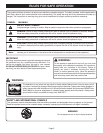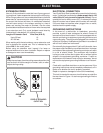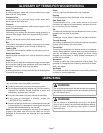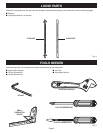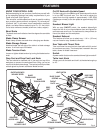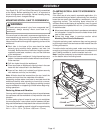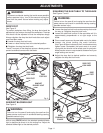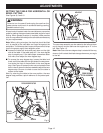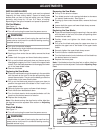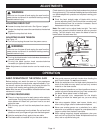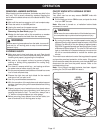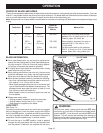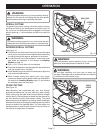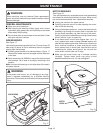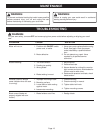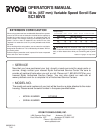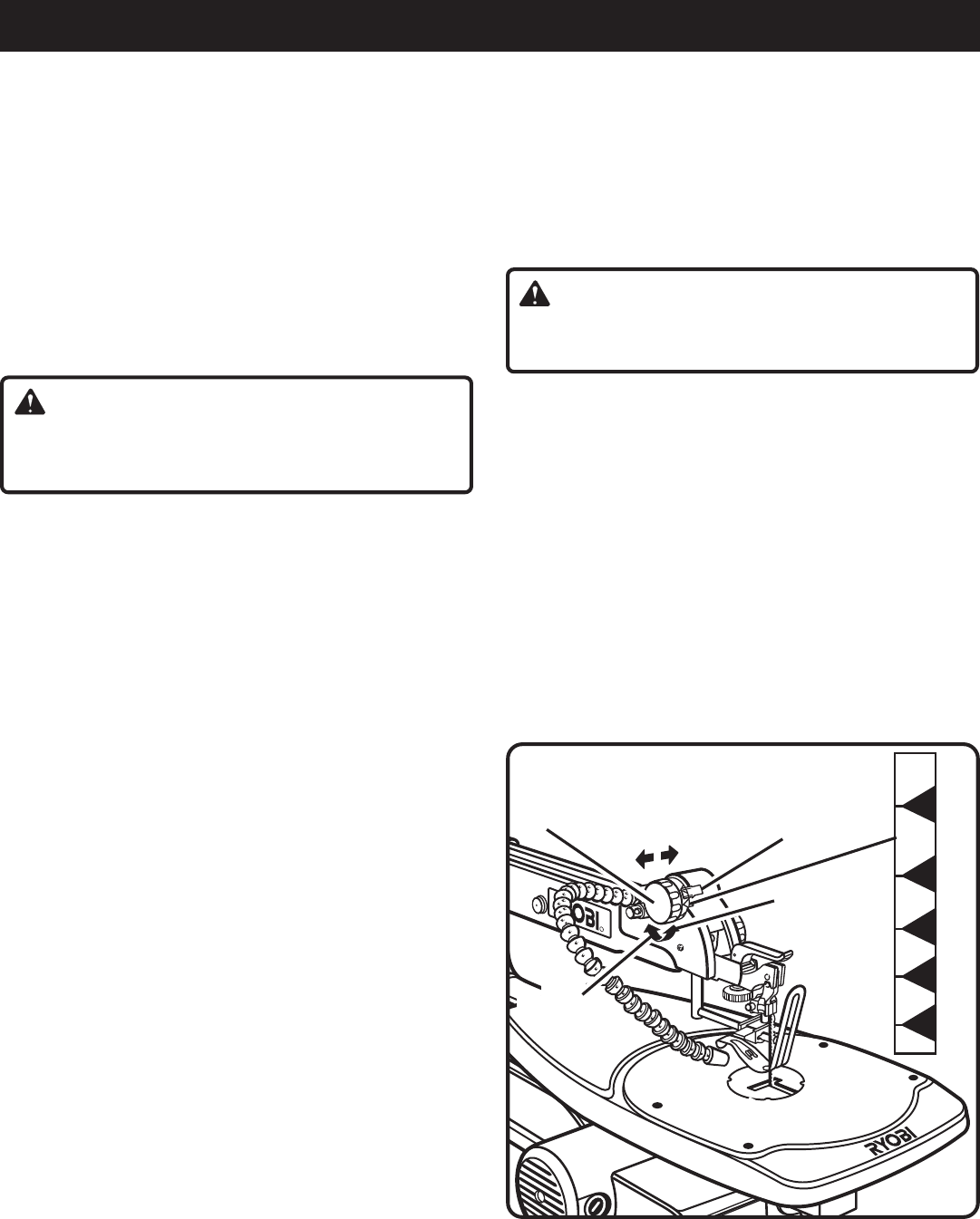
Page 15
R
S
T
O
R
A
G
E
D
E
OPERATION
REMOVING JAMMED MATERIAL
When backing out the workpiece, the blade may bind in the
kerf (cut). This is usually caused by sawdust clogging the
kerf or when the blade comes out of the blade holders. If this
happens:
■ Wait until the saw has come to a full and complete stop.
■ Place the switch in the OFF position.
■ Unplug the saw from the power source.
■ Remove the saw's blade and the workpiece, see section on
Removing the Saw Blade, page 13.
■ Wedge the kerf open with a flat screwdriver or wooden
wedge then remove the blade from the workpiece.
WARNING:
Before removing loose pieces from the table, turn saw off
and wait for all moving parts to stop to avoid serious
personal injury.
AVOIDING INJURY
■ Make sure saw is level and does not rock. Saw should
always be on a firm, level surface with plenty of room for
handling and properly supporting the workpiece.
■ Bolt saw to the support surface to prevent slipping,
walking or sliding during operations like cutting long,
heavy boards.
■ Turn saw off, remove switch key, and unplug cord from
the power source before moving the saw.
■ Do not remove jammed cutoff pieces until blade has come
to a full and complete stop.
■ Choose the right size and style blade for the material
and type of cut you plan to do.
■ Use only recommended accessories.
■ With the exception of the workpiece and related support
devises, clear everything off the saw table before turning
the saw on.
■ Properly support round materials such as dowel rods or
tubing because they have a tendency to roll during a cut
causing the blade to “bite”. To avoid this, always use a
“V” block or clamp workpiece to a miter gauge
■ Before removing loose pieces from the saw table, turn
saw off and wait for all moving parts to stop.
Fig. 13
OFF
ON
SWITCH
ON/OFF KNOB WITH VARIABLE SPEED
See Figure 13.
Your scroll saw has an easy access ON/OFF knob with
variable speed.
■ Pull the knob out to turn ON the saw, and push the knob
in to turn OFF the saw.
Note: After saw is turned on, a hesitation before blade
movement is normal.
WARNING:
Never leave the saw unattended until the blade has come
to a complete stop to prevent serious personal injury.
■ By turning the knob, the variable speed control may be
adjusted from the high speed of approximately 1600 SPM
(Strokes Per Minute) to the low speed of approximately
500 SPM. Suggested speeds are identified under Choice
of Blade and Speed, page 16. Turn the On/Off knob to the
right or clockwise to increase strokes per minute and to
the left or counterclockwise to reduce the strokes per
minute.
This motor has an electronic control that regulates the speed
and provides overload protection to the motor. If the motor
fails to start after about two seconds, push the knob OFF and
disconnect the saw from the power source. Refer to the
troubleshooting chart.
Note: If the internal overload protector has been tripped,
pushing the On/Off knob OFF will reset it.
SPM
1600
1250
1000
750
500
TO
DECREASE
TO
INCREASE
SPEED
INDICATOR



